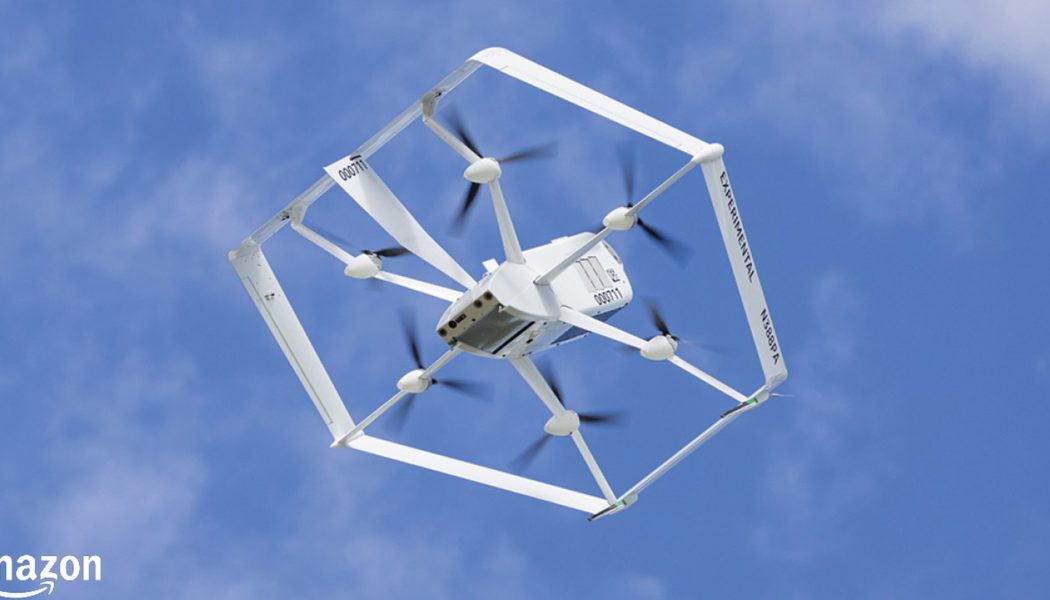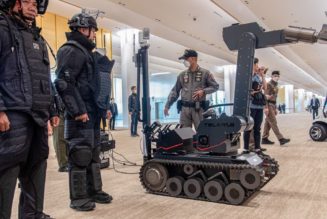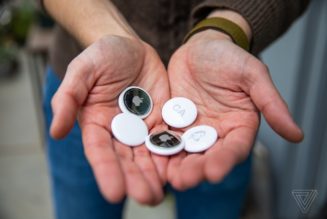The retail giant already flew out some packages to customers in Northern California and a medium-sized Texan city in the run-up to Christmas.
:format(webp)/cdn.vox-cdn.com/uploads/chorus_asset/file/23623764/drone_2.jpeg)
Amazon is now delivering orders by drones in California and Texas with the aim to ultimately fly out packages to customers’ homes within an hour, Ars Technica reports.
The retail giant’s drone delivery service, Amazon Prime Air, already dropped a small number of packages via drone in the backyards of customers in the run-up to Christmas in Lockeford, California, and College Station, Texas.
“Our aim is to safely introduce our drones to the skies. We are starting in these communities and will gradually expand deliveries to more customers over time,” Amazon Air spokesperson Natalie Banke told KTXL Fox 40.
The Federal Aviation Administration (FAA) gave Amazon Part 135 approval to send packages by drone in 2020, as well as filing Final Environmental Assessment and Finding of No Significant Impact/Record of Decision documents for Lockeford on November 14th and College Station on December 12th.
The rural town of Lockeford, California, is located 50 miles southeast of Sacramento and has only about 3,500 residents, while College Station, Texas, is a medium-sized city 100 miles northwest of Houston that’s home to Texas A&M.
Those living in either town are eligible to sign up and place orders, while Amazon will notify customers elsewhere when drone delivery is available in their area. The most recent filings indicate Amazon’s deliveries will be available within 3.73 miles of its delivery center in Texas and within four miles of its drone depot (aka Prime Air Drone Delivery Center, or PADDC) in California.
Operations from the College Station PADDC would occur during daylight hours up to five days per week. The operating area is divided into four sectors, with each sector having a maximum of approximately 50 delivery flights per operating day. Only one aircraft in each sector can be airborne at any time.
Operations from the Lockeford PADDC would occur during daylight hours up to five days per week. The operating area is divided into four sectors, with each sector having a maximum of approximately 50 delivery flights per operating day. Only one aircraft in each sector can be airborne at any time.
After placing an order, customers will receive both tracking information and an estimated delivery time they can expect the drone to drop off the package in their backyard.
The drones are intentionally shaped in a hexagonal fashion with six propellers to improve stability and minimize high-frequency sound waves, Amazon claims. Still, though the MK27-2 delivery drones fly autonomously and are programmed to avoid running into obstacles like chimneys, Amazon says it’s currently using humans to monitor deliveries.
Safety will continue to be a consideration, particularly given some setbacks Amazon faced in developing the drone delivery program, including crashes. In one incident at its test site in Pendleton, Oregon, a drone fell 160 feet and sparked a brush fire that stretched across 25 acres, as reported by Insider and Bloomberg.
At current, Amazon is currently working on a new and reportedly safer MK30 drone that will be available to use in 2024. It should be lighter and smaller than MK27-2 delivery drones, handle high temperatures and light rain better, and go further.









